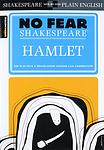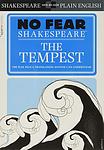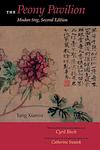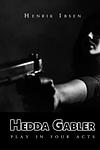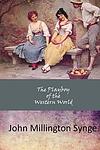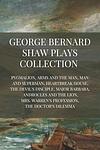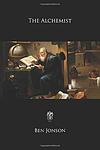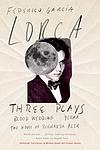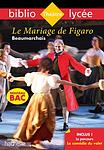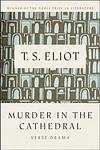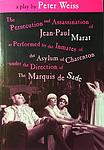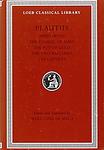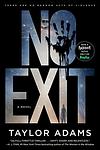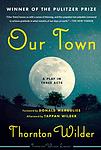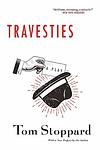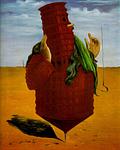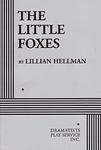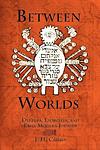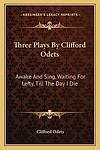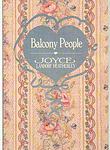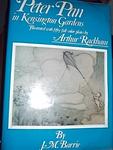The Drama 100 - A Ranking of the Greatest Plays of All Time
This is one of the 288 lists we use to generate our main The Greatest Books list.
-
King Lear by William Shakespeare
This classic tragedy revolves around the aging King Lear, who decides to divide his kingdom among his three daughters based on their declarations of love for him. The two elder daughters, Goneril and Regan, flatter him with insincere praises, while the youngest, Cordelia, refuses to play the game and is disowned. As the king's sanity deteriorates, his kingdom falls into chaos under the rule of his deceitful elder daughters. The play explores themes of power, loyalty, madness, and justice, culminating in a tragic ending where almost all the main characters, including King Lear and Cordelia, die.
-
Oedipus the King by Sophocles
"Oedipus the King" is a tragic play that revolves around the life of Oedipus, the king of Thebes, who is prophesied to kill his father and marry his mother. Despite his attempts to avoid this fate, Oedipus unknowingly fulfills the prophecy. When he discovers the truth about his actions, he blinds himself in despair. The play explores themes of fate, free will, and the quest for truth, highlighting the tragic consequences of human hubris and ignorance.
-
Hamlet by William Shakespeare
This classic play revolves around the young Prince of Denmark who is thrown into a state of emotional turmoil after his father's sudden death and his mother's quick remarriage to his uncle. The prince is visited by the ghost of his father who reveals that he was murdered by the uncle, prompting the prince to seek revenge. The narrative explores themes of madness, revenge, and moral corruption as the prince navigates the complex political and emotional landscape of the Danish court.
-
Oresteia by Aeschylus
"Oresteia" is a trilogy of Greek tragedies that tells the story of the House of Atreus. It begins with King Agamemnon's return from the Trojan War and his subsequent murder by his wife, Clytemnestra, and her lover, Aegisthus. The second play focuses on the revenge of their son, Orestes, who kills his mother and her lover to avenge his father's death. The final play deals with the trial of Orestes by the gods for the crime of matricide, resulting in his acquittal and the end of the curse on the House of Atreus. The trilogy explores themes of justice, vengeance, and the intervention of the gods in human affairs.
-
Macbeth by William Shakespeare
This classic play follows the tragic tale of Macbeth, a Scottish general whose ambition is sparked by a prophecy from three witches that he will one day become King of Scotland. Consumed by ambition and spurred on by his wife, Macbeth murders King Duncan and takes the throne. However, guilt and paranoia plague him, leading to a reign of terror and further bloodshed. His desperate attempts to cling onto power lead to his downfall, illustrating the destructive power of unchecked ambition.
-
Long Day's Journey Into Night by Eugene O'Neill
"Long Day's Journey Into Night" is a semi-autobiographical play that explores the complex dynamics of a family tormented by addiction and regret. The narrative follows the Tyrone family, composed of two parents and their two adult sons, over the course of a single day. As the day progresses, the family members engage in soul-baring conversations that reveal their individual struggles with alcohol and drug addiction, their deep-seated resentments, and the love that binds them together despite their flaws. The play is a poignant examination of the human condition, familial bonds, and the destructive power of addiction.
-
Othello by William Shakespeare
"Othello" is a tragic play about a Moorish general in the Venetian army who is manipulated by his ensign into believing that his wife is unfaithful. Consumed by jealousy, the general kills his wife, only to discover that she was innocent. Filled with remorse, he then takes his own life. The play explores themes of love, jealousy, betrayal, and racism.
-
Waiting for Godot by Samuel Beckett
"Waiting for Godot" is a play that explores themes of existentialism, despair, and the human condition through the story of two characters, Vladimir and Estragon, who wait endlessly for a man named Godot, who never arrives. While they wait, they engage in a variety of discussions and encounter three other characters. The play is characterized by its minimalistic setting and lack of a traditional plot, leaving much to interpretation.
-
Medea by Euripides
"Medea" is a Greek tragedy that tells the story of Medea, a former princess of the "barbarian" kingdom of Colchis, and her husband Jason, who leave her to marry Glauce, the daughter of Creon, king of Corinth. In a fit of rage, Medea decides to take revenge on Jason by killing their children, Jason's new wife, and her father, King Creon. The play explores themes of revenge, women's rights, and the dangers of absolute power.
-
Twelfth Night: Or, What You Will by William Shakespeare
Twelfth Night: Or, What You Will is a comedic play that revolves around mistaken identities and love triangles. The story follows the adventures of Viola, who, after being shipwrecked and separated from her twin brother Sebastian, disguises herself as a man named Cesario. As Cesario, she enters the service of Duke Orsino and falls in love with him, even as he sends her to woo the Countess Olivia on his behalf. However, Olivia falls in love with Cesario, not knowing he is actually Viola in disguise. Further confusion ensues when Viola's presumed-dead brother Sebastian arrives, leading to mistaken identities, hilarious mix-ups, and ultimately, happy resolutions.
-
A Doll's House by Henrik Ibsen
This classic play focuses on the life of Nora Helmer, a woman living in a seemingly perfect marriage with her husband, Torvald. However, as the story unfolds, it becomes clear that Nora has been hiding a significant secret related to their finances. The revelation of this secret, and the subsequent fallout, challenges societal norms and expectations of the time, particularly in regards to gender roles and the institution of marriage. Nora's eventual decision to leave her husband and children in pursuit of her own independence serves as a powerful commentary on individual freedom and self-discovery.
-
The Cherry Orchard by Anton Chekhov
"The Cherry Orchard" is a classic play about an aristocratic Russian woman and her family as they return to their family estate, which includes a large and well-known cherry orchard. The family is on the brink of financial ruin and the estate is slated to be auctioned off. Despite various attempts to save their beloved home and orchard, they are ultimately unable to prevent the sale. The play is a poignant reflection on the changing social order and the decline of the aristocracy in Russia at the turn of the 20th century.
-
The Bacchae by Euripides
"The Bacchae" is a classic Greek tragedy where the god Dionysus, disguised as a mortal, returns to his birthplace in Greece to punish the impious King Pentheus who denies Dionysus's divine nature and refuses to worship him. The narrative explores themes of revenge, mortality, and the relationship between man and god. Dionysus uses his power to drive the women of the city into a crazed frenzy, leading to a tragic end for King Pentheus and his mother Agave.
-
The Importance of Being Earnest by Oscar Wilde
This comedic play revolves around two protagonists who both use the pseudonym "Ernest" to escape their social obligations. Their plans unravel when they fall in love and their betrothed women reveal they are only willing to marry men named Ernest. The situation is further complicated by a case of mistaken identity, a lost handbag, and a surprising revelation about one of the protagonist's parentage. The play uses wit and humor to satirize the social conventions of Victorian England, particularly the importance placed on trivialities.
-
Antigone by Sophocles
This ancient Greek tragedy follows the story of Antigone, a young woman who defies the king's edict in order to bury her brother according to their religious customs. The king, her uncle, sentences her to death for her disobedience, leading to a series of tragic events including his own son's suicide. The play explores themes of loyalty, honor, obedience, and the conflict between the laws of the state and the laws of the gods.
-
Tartuffe by Molière
This classic French play revolves around the character Tartuffe, a hypocritical and cunning man who pretends to be deeply pious and religious. He manages to deceive Orgon, a wealthy family patriarch, into believing in his piety. Orgon is so taken in by Tartuffe that he decides to marry him off to his daughter, despite her love for another man. The family works together to expose Tartuffe's true nature, leading to a series of comic and dramatic events. The play is a satirical critique of religious hypocrisy and gullibility.
-
Antony And Cleopatra by William Shakespeare
"Antony and Cleopatra" is a tragic play that delves into the tumultuous romance between Mark Antony, one of the three rulers of the Roman Empire, and Cleopatra, the seductive queen of Egypt. As Antony becomes increasingly entangled in Cleopatra's allure, he neglects his duties in Rome and faces political and military backlash. The play explores themes of love, power, and betrayal, culminating in both Antony and Cleopatra's tragic downfalls, marked by miscommunication and tragic self-destruction, ultimately highlighting the destructive consequences of their passionate yet volatile love affair.
-
Mother Courage and Her Children by Bertolt Brecht
Set against the backdrop of the Thirty Years' War, the book tells the story of a canteen woman, Mother Courage, who pulls her cart with her three children across war-torn Europe. It explores her struggles and survival tactics as she tries to profit from the war while keeping her children safe. The narrative is a profound critique of war and its consequences, highlighting the human cost of conflict and the often futile search for prosperity and security in a chaotic world.
-
Lysistrata by Aristophanes
"Lysistrata" is a comedic play set in ancient Greece, where the women of Athens, led by the eponymous character, decide to withhold sexual privileges from their husbands and lovers in order to force them to negotiate a peaceful end to the Peloponnesian War. Along with the women of Sparta, they seize the Acropolis and the treasury, and through their non-violent resistance, they manage to bring about a reconciliation between the warring states. The play is a humorous exploration of gender roles and the power of passive resistance.
-
The Tragical History of Doctor Faustus by Christopher Marlowe
This classic work of literature revolves around the character of Doctor Faustus, a scholar who is dissatisfied with traditional forms of knowledge and yearns for more. In his quest for ultimate power and understanding, he makes a deal with the devil, selling his soul in exchange for 24 years of service from the devil's agent, Mephistopheles. Despite the pleasures and knowledge he gains, Faustus eventually regrets his deal as he faces eternal damnation, symbolizing the human struggle between ambition and morality.
-
Death Of A Salesman by Arthur Miller
This classic play explores the life of a failing salesman who, in his quest for the American Dream, struggles with his relationships and his own sense of reality. The protagonist's life spirals into despair as he grapples with his unfulfilled ambitions, strained family dynamics, and ultimately, his own mortality. The narrative delves deep into the themes of identity, illusion, and the destructive nature of the American Dream.
-
Woyzeck by Georg Buchner
The narrative revolves around a lowly soldier named Franz Woyzeck, who struggles with mental instability and social oppression. Tormented by hallucinations and subjected to inhumane medical experiments, he grapples with jealousy and existential angst. His descent into madness is exacerbated by his fraught relationship with Marie, the mother of his child, who becomes involved with another man. Woyzeck's growing paranoia and alienation culminate in a tragic act of violence, reflecting the dehumanizing effects of poverty and the destructive power of societal forces on the individual psyche.
-
Volpone by Ben Jonson
"Volpone" is a satirical comedy set in 17th century Venice, where the cunning protagonist, Volpone, and his servant, Mosca, swindle the city's wealthy elite by pretending Volpone is on his deathbed and in need of a worthy heir. This prompts a series of greedy contenders who offer extravagant gifts in hope of being named the heir. Despite their successful deceit, their scheme is eventually exposed, leading to their downfall. The story serves as a critique of greed and corruption, highlighting the destructive power of unchecked ambition.
-
Henry IV, Part I by William Shakespeare
This classic play revolves around the life of King Henry IV, his son Prince Hal, and their turbulent kingdom. The kingdom is in chaos due to rebellions, and the king is disappointed with his son's irresponsible behavior. The prince, however, spends his time in taverns with the amusing and deceitful Falstaff. As the rebellion against the king grows, Prince Hal shows his true potential and bravery by not only saving his father in battle but also killing the leader of the rebellion, proving himself to be a worthy heir to the throne.
-
The Way Of The World by William Congreve
"The Way of the World" is a Restoration comedy that explores the themes of love, marriage, and deceit in the high society of 18th century London. The plot centers around the complex relationship between Mirabell and Millamant, two lovers who must navigate a maze of social expectations and personal schemes to secure their future together. With a cast of characters that includes the cunning Fainall, the foolish Witwoud, and the manipulative Lady Wishfort, the play satirizes the manners and morals of the time, showcasing the intricate dance of courtship and the artifice involved in securing both love and fortune. Through witty dialogue and intricate plotting, the play critiques the superficiality of society while ultimately affirming the value of true wit and love.
-
A Streetcar Named Desire by Tennessee Williams
"A Streetcar Named Desire" is a classic American play that explores themes of desire, desperation, and decay through the story of Blanche DuBois, a former schoolteacher from a once-wealthy Southern family who moves in with her sister Stella and her brutish husband Stanley in their cramped apartment in New Orleans. As Blanche grapples with her own past traumas and the harsh realities of her present situation, her mental state deteriorates, leading to a tragic end. The play presents a stark contrast between the genteel Old South and the gritty, working-class reality of post-WWII America.
-
The Tempest by William Shakespeare
"The Tempest" is a classic play about a sorcerer and rightful Duke of Milan who has been stranded on an island for 12 years with his daughter after being betrayed by his brother. Using his magical powers and the help of an airy spirit, he conjures a storm to shipwreck his brother and other enemies on the island. The narrative explores themes of revenge, power, magic, and forgiveness as the sorcerer manipulates events on the island to regain his dukedom and secure a good future for his daughter.
-
Major Barbara by George Bernard Shaw
The play explores the complex dynamics of social responsibility, morality, and religion through the lens of an idealistic young woman who works at the Salvation Army to help the poor, and her father, a wealthy munitions manufacturer. The conflict between their worldviews comes to a head as they debate the ethics of wealth and charity, with the father arguing that his business, which provides employment and security, is a greater force for good than charity work that merely alleviates the symptoms of poverty. The daughter's struggle with reconciling her moral convictions with the practicalities of the world leads to a profound examination of the true meaning of goodness and the source of societal change.
-
Endgame by Samuel Beckett
Endgame is a one-act play that follows the lives of Hamm, a blind and unable to stand man, and Clov, his servant who cannot sit. They live in a single room, with Hamm's legless parents residing in dustbins. The characters are trapped in a cyclical existence where they constantly argue and contemplate life, death, and their own existence. The play is characterized by its minimalistic setting and bleak outlook on life, reflecting themes of existentialism and the human condition.
-
The Recognition of Sakuntala by Kālidāsa
"The Recognition of Sakuntala" is an ancient Indian play that tells the story of a beautiful woman named Sakuntala who lives in a hermitage and falls in love with King Dushyant. After a series of misunderstandings and a curse that causes the king to forget Sakuntala, the two are eventually reunited when a fisherman finds the royal signet ring that Dushyant gave Sakuntala, leading to her recognition. The play is a classic example of the Indian dramatic tradition, with its mix of romance, comedy, and elements of the supernatural.
-
Miss Julie by August Strindberg
"Miss Julie" is a classic play that delves into the themes of class, love, and power. The story revolves around the daughter of a Count who, in a moment of passion, becomes involved with her father's valet. This scandalous affair leads to a tumultuous power struggle between the two characters, ultimately resulting in tragedy. The narrative explores the dynamics of gender and class in the late 19th century, revealing the societal constraints that lead to the characters' downfall.
-
The Peony Pavilion by Tang Xianzu
"The Peony Pavilion" is a romantic tragicomedy play set during the Ming Dynasty, revolving around the love story between Du Liniang and Liu Mengmei. After falling in love with Liu in a dream, Du Liniang, the daughter of a high official, pines for him so deeply that she becomes ill and dies. Her spirit roams, seeking to be reunited with her lover. Liu, a young scholar, later discovers her portrait and falls in love with the image, leading to a series of supernatural events that eventually culminate in Du Liniang’s resurrection and the lovers' marriage. The play explores themes of love, destiny, and the metaphysical, challenging the social norms of the time.
-
The Misanthrope by Molière
"The Misanthrope" is a satirical play that explores the hypocrisy and corruption of French aristocratic society through the eyes of the protagonist, a man who insists on absolute honesty and despises flattery, insincerity, and social conventions. Despite his disdain for society, he falls in love with a coquette who embodies everything he detests, leading to a series of comedic and dramatic situations. The narrative ultimately emphasizes the importance of balance between truth and courtesy in social interactions.
-
Three Sisters by Anton Chekhov
"Three Sisters" is a play that revolves around the lives of three sisters, Olga, Masha, and Irina, who live in a provincial Russian town and yearn for their former life in Moscow. The story explores their relationships, dreams, and disappointments, as well as their interactions with the military officers stationed nearby. The narrative is a poignant exploration of love, loss, and the relentless passage of time, highlighting the human struggle for meaning and happiness.
-
Life Is a Dream by Pedro Calderón de la Barca
"Life is a Dream" is a philosophical allegory regarding the human situation and the mystery of life. The play follows the story of Segismundo, Prince of Poland, who has been imprisoned in a tower by his father, King Basilio, following a dire prophecy that the prince would bring disaster to the country and death to the King. Basilio briefly frees Segismundo but returns him to the tower when the prince proves violent and unruly. The story explores themes of free will, fate, power and the thin line that separates reality from dreams.
-
Hedda Gabler by Henrik Ibsen
"Hedda Gabler" is a dramatic play that centers on the life of its titular character, a woman trapped in a loveless marriage with a dull, reliable husband. She is bored with her life and longs for freedom and excitement. Her desire for control and power leads her to manipulate those around her, resulting in tragic consequences. The play explores themes of societal expectations, personal freedom, and the destructive power of boredom.
-
The School For Scandal by Richard Brinsley Sheridan
The play is a satirical depiction of the gossip and hypocrisy found in the high society of 18th century London. It centers around two brothers with contrasting personalities, one appearing to be a model of virtue and the other a dissolute rake, and the schemes of a circle of wealthy, idle gossipmongers. The plot thickens with a series of misunderstandings, eavesdropping, and mistaken identities, all revolving around the brothers' romantic pursuits and the malicious spread of scandal. The narrative ultimately exposes the true characters of the individuals involved, revealing the seemingly virtuous brother to be hypocritical and the seemingly dissolute one to be honorable, thus critiquing the superficial judgments and moral corruption of the elite.
-
The Playboy Of The Western World by John Millington Synge
"The Playboy of the Western World" is a comedic play that centers around Christy Mahon, a young man who stumbles into a rural tavern in County Mayo, Ireland, claiming to have killed his father. His tale unexpectedly elevates his status among the villagers, who find his boldness and story intriguing. As Christy enjoys his newfound popularity and the affection of the local women, complications arise when the truth about his father's fate comes to light. The play explores themes of heroism, identity, and the Irish rural life, using rich language and dramatic irony to critique societal norms and romanticized perceptions of rebellion.
-
The Iceman Cometh by Eugene O'Neill
"The Iceman Cometh" is a play set in a New York City bar in 1912, featuring a group of down-and-out alcoholics who spend their days in a state of drunken stupor, telling tall tales and dreaming of better futures. The arrival of a former patron, now sober, disrupts their routine as he insists on forcing them to face the harsh realities of their lives and abandon their delusions. The play is a poignant exploration of despair, disillusionment, and the human capacity for self-deception.
-
The Love Suicides At Sonezaki by Chikamatsu Monzaemon
"The Love Suicides at Sonezaki" is a poignant Japanese play that tells the tragic story of two lovers, a young merchant named Tokubei and a courtesan named Ohatsu, who are driven to commit suicide together due to insurmountable societal pressures and personal betrayals. Set in the pleasure quarters of Osaka, the narrative explores themes of loyalty, love, and the harsh consequences of rigid social structures. As Tokubei faces betrayal by his unscrupulous uncle and Ohatsu suffers at the hands of her manipulative brothel owner, the lovers see no escape from their torment other than through death, leading them to make a profound and tragic decision.
-
Everyman by Anonymous
"Everyman" is a morality play that explores the theme of Christian salvation and what Man must do to achieve it. The protagonist, Everyman, is a representation of all mankind, who is visited by Death and told he is about to die and face judgement. Unable to convince his friends and family to accompany him, Everyman turns to his good deeds, knowledge, and repentance. The play serves as a reminder of Christian moralities and the importance of good deeds for the afterlife.
-
Angels In America by Tony Kushner
The play is a profound and complex exploration of the AIDS crisis in the 1980s, intertwining the lives of several characters grappling with their sexuality, religion, and politics. Set against the backdrop of a conservative Reagan-era America, it delves into themes of abandonment, race, and the supernatural, as characters confront personal and societal challenges. The narrative weaves together the stories of a gay man diagnosed with AIDS, his closeted and conflicted lover, a Mormon couple facing their own crises, and a notorious real-life lawyer, Roy Cohn, also battling AIDS. Ethereal beings, including a heralding angel, intersect with the characters' lives, adding a fantastical dimension to the play's commentary on human suffering, redemption, and the quest for justice and love.
-
A Midsummer Night's Dream by William Shakespeare
In this classic play, the Duke of Athens is preparing for his marriage when the lives of two young couples become complicated by the meddling of fairies. The fairy king and queen, Oberon and Titania, are quarreling, causing chaos in both the fairy world and the world of mortals. Puck, a mischievous sprite and servant of Oberon, causes further confusion and comic misadventures by casting spells that lead to mistaken identities and misplaced affections. Eventually, all is resolved, and the play ends with three happily married couples.
-
Six Characters in Search of an Author by Luigi Pirandello
In this metatheatrical play, six characters come to life and demand that a theater director tell their tragic story, which was left incomplete by their author. As the director and his actors interact with these characters, the boundaries between fiction and reality blur, leading to a philosophical exploration of the nature of human identity, the reliability of art, and the unreliability of perception. The characters' story, involving a complex web of familial relationships, adultery, and suicide, further complicates the narrative, challenging the audience's understanding of truth and illusion.
-
Man And Superman by George Bernard Shaw
"Man and Superman" is a philosophical drama that delves into the complexities of human evolution, social mores, and the eternal battle between the sexes. The play centers around the character of Jack Tanner, a radical thinker and advocate of free love, who finds himself the unwilling target of the determined and romantic pursuits of Ann Whitefield, a clever young woman who seeks to marry him. Through witty dialogue and engaging characters, the play explores themes of love, politics, and the purpose of human existence, culminating in a fantastical third act set in Hell, where characters debate the nature of reality, morality, and the superman, the Nietzschean ideal of a self-overcoming individual.
-
Phèdre by Jean Racine
"Phèdre" is a classic French play that explores themes of love, guilt, and retribution. The story revolves around the tragic heroine, Phèdre, who falls passionately in love with her stepson, Hippolytus. Battling with her forbidden desires, she eventually confesses her feelings to Hippolytus, leading to a series of devastating events. The play is renowned for its exploration of human emotions, moral dilemmas, and the destructive power of uncontrolled passion.
-
Romeo and Juliet by William Shakespeare
This classic play tells the tragic love story of two young individuals from feuding families in Verona, Italy. Despite their families' ongoing conflict, the pair secretly marry and vow to be together, no matter the cost. Their commitment leads to a series of unfortunate events, including misunderstandings, banishments, and ultimately, their untimely deaths. Their demise, however, reconciles their feuding families, leaving a poignant message about the destructive power of hate and the redemptive power of love.
-
Look Back In Anger by John Osborne
The play centers around Jimmy Porter, an intelligent and educated but disaffected young man of working-class origin who is married to Alison, a woman from a more privileged background. Set in post-war Britain, the narrative captures the couple's volatile relationship and Jimmy's frustration with the lack of opportunities and the class structure that he feels traps him. The arrival of Alison's friend, Helena, adds further tension as she both criticizes and is attracted to Jimmy's raw passion. Themes of anger, class conflict, and disillusionment with the establishment are woven throughout the play, which ultimately explores the complexities of human relationships and societal expectations.
-
The Homecoming by Harold Pinter
"The Homecoming" is a play that delves into the complex dynamics of a dysfunctional family when the eldest son returns home after a long absence. Set in North London, the story unfolds in the family's house, where the son introduces his wife to his domineering father, his uncle, and his two brothers. Tensions rise as the family's power struggles and hidden resentments come to the fore, leading to a shocking and unsettling realignment of relationships within the household. The play explores themes of power, sexuality, and the search for identity within the confines of a seemingly traditional family structure.
-
Who's Afraid Of Virginia Woolf? by Edward Albee
The play is a darkly comedic exploration of the complexities of marriage and personal disillusionment. Set over the course of a single evening, it follows an older couple, George and Martha, who, after a faculty party, invite a younger couple, Nick and Honey, to their home for late-night drinks. As the night progresses, George and Martha engage in increasingly vicious verbal battles in front of their guests, using them as pawns in their psychological warfare. The play delves into themes of reality versus illusion, as the characters' secrets and personal failures are exposed, revealing the deep-seated unhappiness and dysfunction at the heart of their relationships.
-
The Plough And The Stars by Sean O'Casey
Set against the backdrop of the 1916 Easter Rising in Dublin, the play explores the impact of political upheaval on ordinary lives. It centers on the residents of a tenement building, particularly a young married couple whose relationship is strained by the husband's commitment to the nationalist cause. As the rebellion unfolds, the characters' personal dramas intersect with historical events, leading to tragedy and a poignant examination of the human cost of political conflict. The work critiques romanticized notions of nationalism and heroism, revealing the harsh realities of war and the resilience of the human spirit amidst chaos and loss.
-
The Alchemist by Ben Jonson
The book in question is a comedic play set in early 17th-century London, where a clever trio of con artists—Subtle, Face, and Dol—takes advantage of urban fear and superstition during a plague outbreak to swindle a series of gullible victims. Using the guise of an alchemist capable of performing miraculous transformations, the group promises wealth and power to their targets, spinning a web of deceit and exploiting human greed and folly. The play unfolds as a series of farcical episodes, culminating in the inevitable unraveling of their schemes, offering a satirical critique of human credulity and the pretensions of pseudo-science.
-
Trojan Women by Euripides
"Trojan Women" is a tragic play set in the aftermath of the Trojan War, focusing on the fate of the women of Troy. The story follows the mother of Hector, Hecuba, and her daughter-in-law, Andromache, as they grapple with the loss of their city and loved ones. They, along with other women, are destined to become slaves to the victorious Greeks. The narrative explores themes of war, suffering, and the resilience of women in the face of adversity.
-
Saint Joan by George Bernard Shaw
This play is a dramatic depiction of the life and trial of Joan of Arc. The narrative follows the young, illiterate peasant girl who claims to hear voices from saints, guiding her to lead France to victory against England in the Hundred Years' War. Her success on the battlefield eventually leads to her capture and trial for heresy. The play explores themes of individualism, faith, and the corruption of institutions.
-
Blood Wedding by Federico García Lorca
"Blood Wedding" is a tragic play that delves into the themes of passion, family feuds, and societal norms. It tells the story of a bride who, torn between duty and desire, flees her own wedding with her former lover, Leonardo, who is married and from a feuding family. The narrative builds to a climax of inevitable tragedy as the bridegroom and Leonardo confront each other, leading to fatal consequences. The play explores deep emotions and the consequences of human actions, set against the backdrop of rural Spanish society, where honor and personal ties shape destinies.
-
Le Mariage De Figaro by Pierre-Augustin Caron de Beaumarchais
The play is a comedic yet biting commentary on class and privilege, set against the backdrop of a single day in the life of a clever valet named Figaro, who is about to marry his beloved Suzanne. However, their plans are threatened by the Count, who desires Suzanne for himself and aims to exercise his feudal right to bed a servant girl on her wedding night. Through a series of clever maneuvers, secret plots, and humorous twists, Figaro, Suzanne, and their allies outwit the Count and other members of the aristocracy. The play challenges the social norms of the time, including the abuses of the upper classes and the rights of individuals, culminating in a celebration of love and marriage where wit and resourcefulness triumph over rank and power.
-
The Glass Menagerie by Tennessee Williams
A memory play set in St. Louis during the Great Depression, it follows the story of the Wingfield family. The protagonist, Tom, struggles with his role as the breadwinner for his overbearing mother, Amanda, and his physically and emotionally fragile sister, Laura, who spends her time with her collection of glass animals. The family's life takes a turn when Tom invites a gentleman caller home for dinner to meet Laura, causing tensions to rise and secrets to unfold.
-
The Good Person of Szechwan by Bertolt Brecht
"The Good Person of Szechwan" is a parable play that explores the difficulty of maintaining one's morals and goodness in a corrupt and exploitative world. The story revolves around a kind-hearted prostitute who struggles to be a good person under the harsh realities of life in Szechwan. When three gods visit the city in search of a good person, they find only her willing to help them. However, to survive, she must adopt a ruthless alter ego, leading to a complex exploration of morality, identity, and societal pressures.
-
She Stoops to Conquer by Oliver Goldsmith
"She Stoops to Conquer" is a comedic play that revolves around the story of a wealthy countryman, Mr. Hardcastle, who arranges for his daughter, Kate, to meet Charles Marlow, the son of a wealthy Londoner, hoping the pair will marry. However, Marlow is nervous around upper-class women, yet gets along fine with lower-class women. Kate learns of this and pretends to be 'common' to get to know him. The play concludes with Kate revealing her true identity, and Marlow, who is in love by this point, is relieved she's actually of the upper class. The play explores themes of class, courtship, and the deceptive nature of appearances.
-
Murder In The Cathedral by T. S. Eliot
The play dramatizes the internal conflict of a 12th-century archbishop, Thomas Becket, as he grapples with the temptation of spiritual pride and the implications of defying King Henry II. Upon his return from exile, Becket faces pressure from the king and his own tempters to compromise his principles for safety and convenience. Ultimately, Becket chooses to embrace his role as a martyr, fulfilling his duty to God over the monarchy. His assassination in Canterbury Cathedral by the king's knights is depicted as an act of martyrdom, exploring themes of faith, loyalty, and the struggle between church and state.
-
The Bald Soprano by Eugène Ionesco
"The Bald Soprano" is a play that explores the absurdity of everyday life through a nonsensical narrative. It revolves around two middle-class English couples, the Smiths and the Martins, who engage in meaningless and repetitive conversations. The play is known for its unconventional structure, lack of plot, and the characters' surreal behavior, which are all used to satirize the banality and futility of routine and social norms. The title refers to a character who is never seen or mentioned again after the opening scene.
-
The Ghost Sonata by August Strindberg
The play delves into the dark and mysterious world of a young student who, after a chance encounter, becomes entangled in the lives of the residents of a haunted house. As he becomes more involved, he is exposed to the deceit, betrayal, and moral decay that lie beneath the surface of the seemingly respectable household. The narrative unfolds through a series of surreal and ghostly events, revealing the psychological and existential struggles of the characters as they grapple with their past sins, illusions of love, and the search for redemption and truth in a world filled with secrets and specters.
-
The Government Inspector by Nikolai Gogol
The play is a satirical comedy that exposes the corruption and foolishness of the bureaucracy in a small Russian town. When officials mistake a lowly civil servant for a feared government inspector traveling incognito, they fall over themselves to cover up their town's numerous misdeeds. The visitor exploits the situation for personal gain, accepting bribes and enjoying the sycophantic hospitality of the town's officials, who are oblivious to his true identity. The story unfolds with a series of comedic misunderstandings and ironic twists, culminating in a final revelation that leaves the townspeople facing the consequences of their deception and moral laxity.
-
The Crucible by Arthur Miller
Set during the Salem Witch Trials in the late 17th century, this play explores the hysteria, deceit, and religious extremism that plague a small Puritan village in Massachusetts. The protagonist, a flawed but essentially good man, is caught in a web of accusations when young girls in the town start displaying strange behavior and accusing others of witchcraft. The ensuing trials reveal not only the dangers of mass hysteria and false accusations, but also the destructive power of societal pressures and the human capacity for both cruelty and heroism.
-
Marat Sade by Peter Weiss
The play is a dramatic exploration of power, class struggle, and human suffering set within the confines of an insane asylum in 1808 France. It depicts the Marquis de Sade as an inmate directing his fellow patients in a play about the assassination of Jean-Paul Marat, a radical journalist and politician during the French Revolution. The work delves into the philosophical and political debates between Sade and Marat, representing differing views on revolution, freedom, and the nature of humanity. As the inmates perform, the line between performance and reality blurs, creating a provocative and chaotic theater experience that challenges the audience's perception of madness and reason.
-
Translations by Brian Friel
"Translations" is a play set in a small Irish village in 1833, exploring themes of language, identity, and cultural conflict. The narrative unfolds in a hedge school where residents, who primarily speak Irish, face the arrival of English soldiers tasked with anglicizing place names as part of a broader effort to map and control the area. The play delves into personal and political tensions that arise from this cultural imposition, highlighting the transformative and often tragic effects of colonial endeavors on local communities and personal relationships. Through its rich, multilingual dialogue, the play examines the profound impacts of language on identity and community cohesion.
-
The Beggar's Opera by John Gay
"The Beggar's Opera" is a satirical ballad opera that critiques the corruption of society through the lens of a criminal underworld in 18th-century London. The story revolves around the charming but deceitful highwayman, Macheath, who marries Polly Peachum, much to the dismay of her parents, who are involved in the criminal justice system and seek to profit from turning him in. The opera parodies the politics of the time, the legal system, and Italian opera, using popular tunes of the day to make it accessible to a wider audience. The narrative unfolds with a mix of comedy and drama, as Macheath's relationships with various women, including Polly and the jailer's daughter, Lucy Lockit, lead to his eventual arrest and the prospect of execution, with a satirical twist on the notion of justice and morality.
-
Amphitryon by Plautus
The play is a comedic tale set in ancient Greece, where the god Jupiter, enamored with Alcmena, the wife of the general Amphitryon, takes on her husband's form to seduce her while Amphitryon is away at war. Meanwhile, Mercury, the messenger god, assists Jupiter by disguising himself as Amphitryon's slave, Sosia. The resulting confusion and mistaken identities lead to a series of humorous situations, as the real Amphitryon returns home to find his place usurped by the god. The play explores themes of deception, infidelity, and the interplay between gods and mortals, all wrapped up in a farcical package that entertains while it provokes thought about the nature of identity and trust.
-
No Exit by Jean Paul Sartre
The book is a profound existentialist play that delves into the human psyche and the concept of hell through the experiences of three deceased characters who find themselves trapped together in a mysterious, windowless room. As they engage in intense psychological games and confront the worst aspects of their earthly behaviors, they come to the harrowing realization that their torment comes not from any external punishment, but from each other and the eternal company they are forced to keep. The narrative explores themes of freedom, responsibility, and the often unbearable nature of human existence, encapsulated in the famous line, "Hell is other people."
-
A Raisin In The Sun by Lorraine Hansberry
The play explores the dreams and struggles of a Black family living on Chicago's South Side in the 1950s. When the family receives a $10,000 insurance check after the father's death, each member has different ideas about how to use the money. The mother wishes to buy a house to fulfill her late husband's dream of providing a better home for the family, while her son wants to invest in a liquor store to secure their financial future. The daughter seeks to use part of the money for her medical school tuition. Their conflicting aspirations and the pervasive racism of the era put a strain on the family's unity and values, as they strive to find their place in a world that often seems to work against them.
-
Our Town by Thornton Wilder
This play is a poignant depiction of life in a small American town called Grover's Corners, New Hampshire, at the turn of the 20th century. Through the everyday lives of its citizens, the narrative explores universal themes of love, marriage, mortality, and the passage of time. The story is narrated by a stage manager who directly addresses the audience and interacts with the characters, guiding viewers through the experiences of two families, the Gibbs and the Webbs. The play's minimalist staging and meta-theatrical elements emphasize the ephemeral nature of human existence, encouraging the audience to appreciate the beauty of life's ordinary moments.
-
The Country Wife by William Wycherley
The play is a Restoration comedy from the 17th century that satirizes the sexual and marital mores of the time. It revolves around the exploits of Horner, a rakish gentleman who spreads a false rumor about his own impotence in order to seduce married women without arousing their husbands' suspicions. The narrative intertwines Horner's machinations with the stories of various couples, including the simple country wife Margery, who is new to the city's social scene and whose naivety and desire for pleasure make her an easy target for Horner's scheme. The play is known for its witty dialogue, sexual innuendo, and commentary on the hypocrisy of societal norms.
-
Travesties by Tom Stoppard
The play is a comedic and intellectual romp through Zurich during World War I, where the lives of historical figures like the Dadaist Tristan Tzara, the novelist James Joyce, and the communist revolutionary Lenin intersect through the unreliable memories of British consular official Henry Carr. The narrative is a playful, non-linear exploration of art, politics, and the nature of memory, blending slapstick humor with sharp wit and literary allusions. The work challenges the audience to consider the role of the artist in society and the impact of political upheaval on cultural expression, all while questioning the reliability of history and the very nature of truth itself.
-
The Lower Depths by Maksim Gorky
The book is a stark depiction of the lives of the impoverished and dispossessed at the bottom of the Russian social ladder in the early 20th century. Set in a squalid shelter, it presents a group of destitute individuals from various backgrounds—thieves, prostitutes, and the down-and-out—who share their stories and philosophies as they grapple with the harsh realities of poverty and survival. The narrative delves into themes of human suffering, the struggle for dignity, and the elusive nature of truth, offering a grim commentary on the social conditions of the time and the human condition itself.
-
Private Lives by Noel Coward
"Private Lives" is a sophisticated comedy of manners that explores the complexities of love and relationships. The play centers around a divorced couple who, while honeymooning with their new spouses, discover they are staying in adjacent rooms at the same hotel. Their rekindled passion for each other leads to a comedic and tumultuous affair, as they grapple with the realization that they cannot live with or without one another. The sharp wit and sparkling dialogue highlight the frivolity and the underlying emotional truth of the characters' tumultuous relationships, making it a timeless piece that satirizes the manners and morals of high society.
-
Fool For Love by Sam Shepard
"Fool for Love" is a play that delves into the complex and turbulent relationship between two former lovers who find themselves holed up in a seedy motel room on the edge of the Mojave Desert. As they confront their intertwined past and the deep-seated secrets that have driven them apart, the play explores themes of obsession, identity, and the blurred lines between reality and illusion. The presence of an old man, who observes and comments on the action, adds a layer of mystery and symbolism, while the arrival of another character introduces an external perspective to the couple's intense emotional struggle. The play's raw dialogue and dramatic tension reflect the characters' desperate struggle for connection and their inability to escape the destructive patterns that bind them.
-
A Flea In Her Ear by Georges Feydeau
"A Flea in Her Ear" is a classic French farce that revolves around misunderstandings, mistaken identities, and convoluted plots, all set against the backdrop of Paris in the early 20th century. The story begins when a wife suspects her husband of infidelity and sets a trap to catch him in the act, leading to a series of comic mishaps involving a lascivious hotel, a cast of eccentric characters, and numerous doors that continually open and close, creating a whirlwind of hilarious encounters and narrow escapes. The play is celebrated for its intricate plotting and its breakneck pace, making it a staple of comedic theatre.
-
Glengarry Glen Ross by David Mamet
The book is a scathing critique of the cutthroat world of real estate sales. It follows a group of desperate salesmen in Chicago who are willing to engage in a range of unethical and illegal acts—from lies and flattery to bribery and burglary—to sell undesirable real estate to unwitting buyers. The story is a snapshot of their lives over two days, highlighting the intense pressure they face from their company to close deals by any means necessary in order to survive in a merciless, competitive environment. The narrative delves into themes of capitalism, desperation, and the corrupting influence of a high-stakes sales culture, all while presenting a darkly comedic portrayal of the characters' struggles for success and self-preservation.
-
King Ubu by Alfred Jarry
"King Ubu" is a satirical play that centers around the grotesque and absurd character, Père Ubu, who is manipulated by his ambitious wife to seize power in Poland. Once king, Ubu's reign is marked by greed, cruelty, and incompetence, leading to chaos and violence. The play employs absurdity and farce to critique power and corruption, using exaggerated characters and surreal scenarios to highlight the folly and destructiveness of tyrannical rule. This pioneering work is often considered a precursor to the Theatre of the Absurd and has had a lasting influence on avant-garde theatre.
-
Cloud Nine by Caryl Churchill
"Cloud Nine" is a provocative play that explores themes of sexual politics and colonial oppression through a non-linear narrative and unconventional casting. The first act is set in British colonial Africa during the Victorian era, where characters struggle with their roles and identities within the rigid constraints of colonial and sexual norms. The second act shifts to London in 1979, though for the characters, only 25 years have passed, highlighting the changes and continuities in their lives and relationships. The play challenges traditional gender roles and sexual orientations, using cross-gender and cross-racial casting to further emphasize the arbitrariness and fluidity of identity.
-
At The Hawk's Well by William Butler Yeats
"At the Hawk's Well" is a play that blends elements of Japanese Noh theatre with Irish folklore, focusing on the story of an old man who has spent his life waiting by a magical well that is guarded by a hawk-like creature. This well is said to grant immortality when its waters are stirred. The narrative unfolds as a young warrior arrives, seeking the same immortal waters. The play explores themes of obsession, the pursuit of unattainable goals, and the intersection of fate and free will, all conveyed through a combination of dance, masks, and poetic dialogue.
-
Orpheus by Jean Cocteau
"Orpheus" is a modern retelling of the classic Greek myth, reimagined through the lens of a 20th-century setting. The story revolves around a poet who becomes obsessed with Death, personified as a mysterious and captivating princess. As he navigates a world where the boundaries between the mortal realm and the underworld blur, his love and artistic pursuits lead him into a surreal journey of passion, betrayal, and introspection. The narrative delves into themes of creativity, the destructive nature of love, and the quest for immortality through art, all while challenging the perceptions of reality and the supernatural.
-
Master Harold...And The Boys by Athol Fugard
The play takes place in South Africa during the era of apartheid and revolves around the complex relationship between a young white boy and two black men who work in his mother's tea room. The boy has grown up with these men and shares a close bond with them, but as he struggles with personal turmoil and the pressures of the racist society around him, he begins to assert his racial superiority, leading to a devastating display of discrimination and the shattering of their familial relationship. The narrative explores themes of racism, human dignity, and the impact of societal injustice on personal relationships.
-
The Well Cradle by Zeami Motokiyo
"The Well Cradle" is a classical Noh drama that delves into themes of longing, spiritual fulfillment, and the transient nature of life. The story revolves around a monk who encounters the spirit of a woman while visiting a well-known for its tragic legends. Through their interaction, the play explores the woman's sorrowful tale, her deep-seated regrets, and her yearning for spiritual salvation. The monk, moved by her story, offers prayers for her peace, reflecting the Buddhist belief in compassion and the possibility of redemption. The play combines poetic language, symbolic action, and supernatural elements to evoke a poignant atmosphere, characteristic of Noh theater.
-
The Other Shore by Xingjian Gao
"The Other Shore" is a play that explores themes of identity, freedom, and human nature through a series of allegorical and surreal scenes. The narrative follows a group of characters who attempt to cross a river, symbolizing the transition from the oppressive constraints of their old lives to a new, unknown existence. As they confront various existential challenges and philosophical dilemmas, the characters grapple with their desires, fears, and the very essence of their beings, ultimately questioning the nature of reality and the possibility of true liberation. The play delves into the conflicts between individuality and collective identity, and the struggle for personal authenticity in the face of societal norms.
-
The Little Foxes by Lillian Hellman
The play is a riveting Southern Gothic tale that delves into the greed and deceit within the Hubbard family in the Deep South at the turn of the 20th century. As the family members scheme and manipulate each other to gain control of a lucrative cotton mill venture, the narrative exposes the moral decay festering beneath their quest for wealth. Central to the story is a strong-willed and manipulative matriarch who will stop at nothing to secure her financial future, even at the expense of her own family's happiness and well-being. The play's exploration of themes such as ambition, betrayal, and the corrosive effects of greed makes it a powerful and enduring piece of American drama.
-
Fences by August Wilson
The play explores the life of an African American family in the 1950s, focusing on the complex relationships between a father, who once aspired to be a professional baseball player but was thwarted by racial discrimination, and his family. The father's bitterness and frustrations over his unfulfilled dreams and the racial barriers of his time manifest in his relationships with his sons, who have their own hopes and ambitions. The narrative delves into themes of generational conflict, racial inequality, and the struggle for personal fulfillment, all symbolized by the fence the father builds around his yard, which serves as a metaphor for both division and protection.
-
The Dybbuk by S. Ansky
The book is a seminal work in Yiddish literature and folklore, centering around the concept of a dybbuk—a malicious possessing spirit from Jewish mythology. The narrative follows the tragic tale of a young bride in a Polish shtetl who becomes possessed by the restless spirit of her dead lover, who had been wronged by his own father and her father's broken pledge. The possession leads to a dramatic exorcism and a series of events that explore themes of love, betrayal, and the clash between the mystical and the rational, as well as the boundaries of life and death. The story delves into the rich tapestry of Jewish mysticism, community, and tradition, reflecting the cultural and religious tensions of Eastern European Jews before the First World War.
-
The Visit by Friedrich Dürrenmatt
The narrative revolves around the return of a wealthy woman to her impoverished hometown, where she offers the residents a disturbing proposition: a vast fortune in exchange for the life of the man who wronged her in her youth. As the townspeople's initial horror gives way to the corrupting influence of the promised wealth, moral integrity collapses, leading to a dark and cynical exploration of human nature, justice, and revenge. The story serves as a powerful commentary on the capacity for greed to erode community values and the price of justice in a world governed by materialism.
-
The Weavers by Gerhart Hauptmann
"The Weavers" is a dramatic play that portrays the harsh realities of the Silesian weavers' revolt in 1844. It vividly depicts the extreme poverty and exploitation faced by the weavers, who are driven to rebellion against their oppressive employers. The play is structured around the escalating tension and despair of the weavers, culminating in a powerful and tragic climax. Through its stark and realistic portrayal of social injustice and human suffering, the play critiques the socio-economic conditions of the time and highlights the weavers' struggle for dignity and justice.
-
Le Cid by Pierre Corneille
"Le Cid" is a dramatic play that follows the story of a young nobleman who is torn between love and honor. The protagonist is faced with a dilemma when he is ordered to kill his beloved's father in a duel to defend his own father's honor. Despite his love for his girlfriend, he chooses honor over love and kills her father, leading to a series of tragic events. The play explores themes of duty, honor, and the moral complexities of revenge.
-
The Rover by Aphra Behn
"The Rover" is a Restoration comedy that centers around the escapades and romantic misadventures of a group of English cavaliers at the Carnival in Naples. The plot weaves together the tales of love, disguise, and mischievous intrigue as the charming but rakish protagonist and his friends navigate the complex social landscape, pursuing love interests and evading the consequences of their actions. The play tackles themes of love, honor, and the social roles of women, while also offering a humorous and satirical take on the mores of the time. The narrative culminates in a series of mistaken identities and unexpected revelations, ultimately leading to marriages and reconciliations in true comedic fashion.
-
Awake And Sing! by Clifford Odets
The play is a poignant exploration of the Berger family's struggles during the Great Depression in the Bronx, New York. It centers around Bessie Berger, a matriarch determined to keep her family afloat amidst economic hardships, conflicting ideals, and the pursuit of the American Dream. Through the interwoven lives of her idealistic son Ralph, disillusioned husband Myron, and rebellious daughter Hennie, the narrative delves into themes of hope, disillusionment, and the quest for a better life. The characters grapple with their individual aspirations and the harsh realities of their circumstances, revealing the resilience of the human spirit in the face of adversity.
-
The Brothers Karamazov by Fyodor Dostoevsky
This classic novel explores the complex, passionate, and troubled relationship between four brothers and their father in 19th century Russia. The narrative delves into the themes of faith, doubt, morality, and redemption, as each brother grapples with personal dilemmas and family conflicts. The story culminates in a dramatic trial following a murder, which serves as a microcosm of the moral and philosophical struggles faced by each character, and by extension, humanity itself.
-
The Balcony by Jean Genet
"The Balcony" is a play set within a brothel that doubles as a fantasy realm for its clients, who act out their grandiose illusions of power as figures like a bishop, a judge, and a general. As a revolution rages in the streets outside, the establishment's madam and her patrons grapple with the nature of authority and reality, blurring the lines between the authentic and the performative. The play delves into themes of identity, societal roles, and the corrupting influence of power, offering a dark, existential critique of the structures that uphold the facade of societal order and the human desire to escape into illusion.
-
Accidental Death Of An Anarchist by Dario Fo
In this satirical farce, an eccentric and quick-witted man, referred to as the Maniac, infiltrates a police station where an anarchist railway worker's death is being investigated. The authorities claim the anarchist died by suicide, having jumped out of a window during an interrogation. However, the Maniac cleverly impersonates various officials, manipulates the policemen, and exposes the absurdities and contradictions in their stories, suggesting that the anarchist's death was not an accident but a cover-up of police brutality. The play uses sharp humor and slapstick to critique corruption and the misuse of power within the establishment, ultimately questioning the integrity of the police and the justice system.
-
The Hostage by Brendan Behan
"The Hostage" is a play set in a Dublin lodging house, where a young British soldier is held captive by Irish nationalists as a bargaining tool to prevent the execution of an Irish prisoner in Belfast. The narrative unfolds in a chaotic and comedic manner, reflecting the absurdity of political conflicts and the human condition. Throughout the play, the interactions among the diverse group of characters, including the house residents and the hostage, reveal deeper themes of humanity, compassion, and the futility of violence, culminating in a tragic yet poignant climax that questions the true cost of ideological warfare.
-
The Heidi Chronicles by Wendy Wasserstein
The play follows the life of Heidi Holland from high school in the 1960s to her career as an art historian more than twenty years later. Through personal and professional struggles and triumphs, Heidi navigates the complexities of women's roles in society, friendships, and romantic relationships while trying to find her own sense of self. Set against the backdrop of significant historical events and cultural shifts in America, the narrative explores themes of feminism, the changing status of women, and the quest for fulfillment, ultimately questioning whether true success and happiness are attainable for a modern woman.
-
The Best Mayor, The King by Lope de Vega
"The Best Mayor, The King" is a play that revolves around the themes of justice and the ideal ruler. Set in a small village in Spain, the story unfolds with the villagers suffering under the corrupt rule of a local magistrate who exploits his power for personal gain. The villagers appeal to the king, who decides to investigate the matter incognito. Disguised as a low-ranking official, the king witnesses firsthand the magistrate's tyranny and the suffering of his subjects. Through a series of clever tests and moral challenges, the king reveals his true identity and restores justice, proving that the best governor is the king himself, who rules with wisdom and fairness. The play is a critique of corruption and an exploration of the qualities that constitute a just ruler.
-
Peter Pan by J. M. Barrie
This classic children's novel is about a boy named Peter Pan who never grows up and lives in a magical place called Neverland. Peter Pan, along with his fairy sidekick Tinker Bell, invites the Darling children - Wendy, John, and Michael - to Neverland where they encounter pirates, mermaids, and other fantastic adventures. The story explores themes of innocence, friendship, bravery, and the bittersweet nature of growing up.
Book, 100 Books
Which plays are truly great, and why? This book by Daniel Burt profiles 100 of the greatest plays drawn from all cultures and periods of literature.
Added 13 days ago.
This list has a weight of 18%. To learn more about what this means please visit the Rankings page.
Here is a list of what is decreasing the importance of this list:
- Voters: 1 person voted
- List: only covers 1 specific genre
If you think this is incorrect please e-mail us at [email protected].


